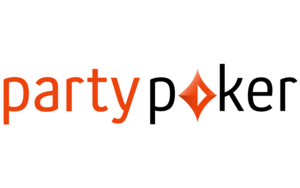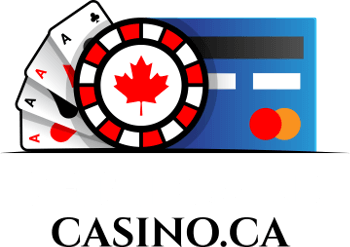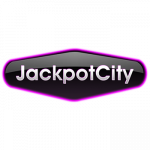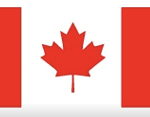Cynosure Evaluation of Top Canadian eCheck Poker Sites in 2018
Analysis of Canadian poker sites that accept eCheck deposits.

Online poker has been around for nearly two decades now. In that time, we’ve witnessed the birth, disappearance and recrudesce of one payment method after another. Legal ramifications have been the most prominent underlying cause of this deathly fever, claiming pecuniary businesses like some medieval plague.
For those of us who employ these systems, it often brings in question the safety and security of our internet gambling accounts. Why do some payment systems come and go so quickly? Are they unsafe? Have they failed to protect their clients? No. Most often, they possess a bad habit of processing deposits for players in countries where online gambling is illegal. And once the long arm of the law gets close enough, they bail out.
Throughout all this, only a few select deposit methods have held their esteemed position in the global iGaming market (mostly by refusing to facilitate black market gambling payments). Among them are eChecks, an abridged term for Electronic Checks. An eCheck is, essentially, any payment method that employs EFT protocol, or electronic funds transfer (more on that below).
These payments are known by a wide variety of other names, so you’ll need to be observant when seeking them out. PokerStars still calls them by their original title, eChecks, but Canadian players aren’t accepted here. Other operators may use the terms ACH/EFT, Instant eCheck, Instant Banking, or iDebit. 888Poker simply calls them Electronic Transfers.
How do eChecks Work?
An eCheck utilizes EFT protocol, using secure electronic notifications to submit payment requests and get instant approval or denial from the issuing bank. It’s all very technical from within, yet beautiful in its speed and simplicity from the user’s standpoint.
The process begins when a player initiates an eCheck deposit. The user will supply specific banking information, all of which can be found on a paper check (hence the name). This often includes the player’s checking account number, and the bank’s routing number. Next, the amount to be deposited is entered, and the payment submitted. Here’s what happens next:
- The bank receives an electronic notice of payment request from the poker site.
- The bank sends an immediate notification back to the poker site that the funds are, or are not, available.
- If funds are sufficient, the bank initiates the transfer, and the poker site deposits the money in to the player’s account. If not, the payment is declined.
- The poker site—knowing the funds are on the way—then waits for the actual payment to arrive in its bank account.
The whole process generally takes 1-3 minutes.
What’s My Bank’s Routing Number?
Every Canadian bank has a routing number, also known as the ABA Routing Number, or Financial Institution Account Number. This number is the bank’s account number. Just like you have an account number with the bank, the bank has an account number with government financial authorities.
There are several ways you can find it. If you have paper checks, you’ll find this 9-digit number at the bottom right corner of the cheque, as shown in the image below.

Alternatively, you can call your bank and simply ask for the routing number, or visit the bank’s website and search for it in the help section. For example, the routing number for RBC Bank is: 063216608
Top Canadian eCheck Poker Sites in 2018
As preferential as this payment method has become over the years, it’s rather surprising how few Canadian online poker sites continue to offer it. They would prefer you enter your credit or debit card details, or to use an online payment processing system. But in the greater scheme of things, there’s no more secure, cost effective measure of transferring funds—at least, not for players.
A cynosure evaluation of online poker sites must include various elements of distinguishing criteria. Clearly, eChecks must be available on the list of banking methods, and Canadian players must be accepted. But these are the obvious nomenclatures. Ensuring the security of your deposits involves more in-depth analysis, examining the maturity and regulatory responsibility of any operator you intend to do business with.
First and foremost, the poker site must be licensed and regulated in a reputable jurisdiction that upholds the strictest standards. European jurisdictions—Alderney, Gibraltar, Isle of Man, Malta, the UK, etc.—are famous for this. Regulatory bodies in these locations will only supply a license to operators who employ minimum 128-bit SSL security encryption technology, mandatory operator/player financial account segregation, and other key player protection policies.
The maturity of Canadian eCheck poker sites should also be taken into account. We never recommend joining a brand new operation, as it’s had no time to develop a reliable reputation. Older websites, like those founded in the late 1990s or first decade of the 21st century, have built a rapport with their customers. If there’s a recent history of payment issues, you’ll have no trouble discovering it on today’s social media-driven society.
To put it simply, a little due diligence goes a long way. Staying safe—protecting your personal and financial information—is worth the extra bit of time it takes to analyze a poker site’s responsibility to players.
Party Poker Canada, the most trusted Canadian gaming destination, and our editor’s pick for two years, now offers a wide variety of popular card games: from Texas Hold’em, to Omaha, to 7 card stud, to Limit Hold’em and even casino games like blackjack. Play for fun, for free, or play for real, for real money that is ! Our editorial pick for 2023.

www.PartyPoker.com
 (Reminder to Gamble Responsibly)
(Reminder to Gamble Responsibly)




